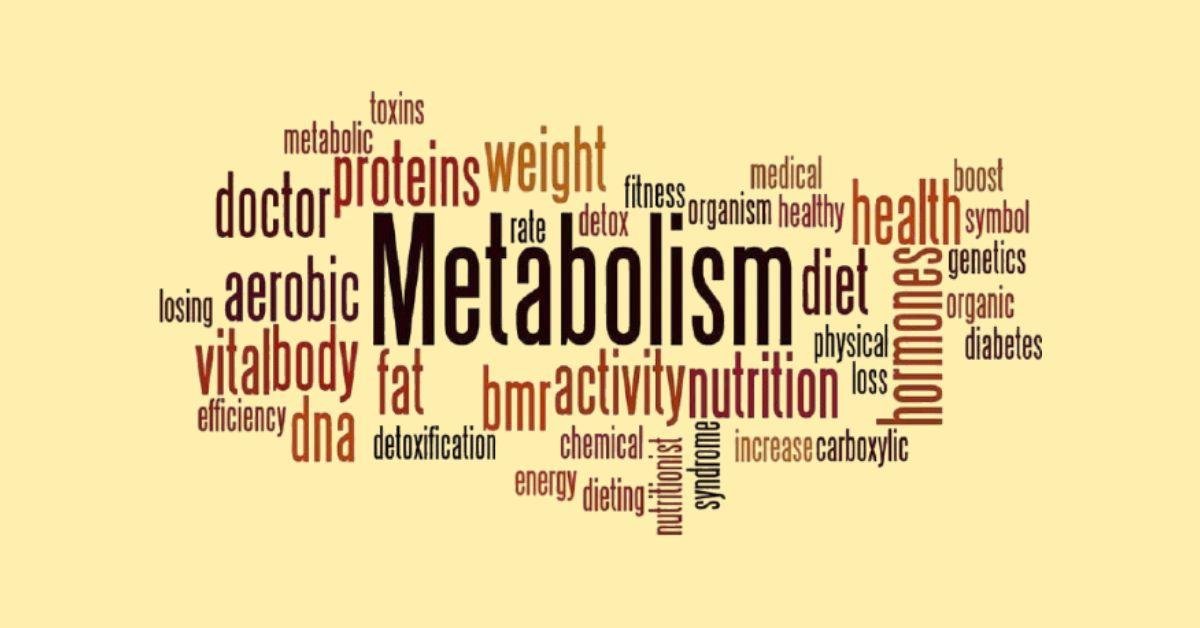If you’re working towards a healthier lifestyle, you’ve likely heard about Metabolism and its role in weight management, energy levels, and overall well-being. But what exactly is metabolism, and how can you support it effectively?
What is Metabolism?
In simple terms, they are known as all the processes in your body in which chemicals are produced and used by the body to function. They enable the conversion of food into energy, tissue construction and repair, and upkeep of your whole body functions, including circulation and breathing. Metabolism can easily be described as the motor that powers every cell, organ, and everything else in the body.
The metabolic process can be divided into two main categories:
- Anabolism – the combination and building up of molecules to release energy.
- Anabolism – the process by which substances that are required by cells are built.
Together, these mechanisms help to make certain that your body has the fuel to continue moving, whether this is through physical activity, work, or sleep.
Roles of Metabolism in Obesity and Weight Loss:
Possibly one of the most frequently asked issues concerning Metabolism is its connection to weight. Understanding this is based on the calories you take in and the calories you burn. Here’s a breakdown of how it works:
Basal Metabolic Rate (BMR): This is also measured in the basal metabolic rate (BMR, which informs your body on the number of calories needed to perform functions such as breathing, pumping blood, or manufacturing new cells. BMR accounts for 60-75 percent of one’s basal metabolic rate for the day.
Physical Activity: It gets even better as every action you make, whether through walking, exercising, or fidgeting, uses some amount of energy. The calories you burn here depend on the amount of physical activity you undertake.
Effect of Food: Digestion itself is an energetically costly process, needing at least 10% of your total daily calories. High protein foods, for instance, take a longer time to digest than fats and carbohydrates, hence causing the body to use more energy.
To sum up, in the case that the human burns more calories than he or she consumes, this human is likely to lose weight; in the case that this consumer burns fewer calories than calories consumed, this consumer may tend to gain weight. But Metabolism is not only about slimming; it characterizes your energy level and your body’s ability to metabolize foods.

- Determinants of the Metabolic Rate
- Several factors affect your metabolic rate:
Age: It declines as one ages because there are fewer muscles in the body as people age and because the level of physical activity declines.
Muscle Mass: Muscle tissue has a higher metabolic rate than fat, meaning more muscle mass increases the basal metabolic rate
Genetics: If one is born with a slow Metabolism or a fast Metabolism, then the metabolism rate is predetermined.
Hormones: Hormonal changes may affect metabolism in a tremendous way, for example, through changes in thyroid hormones.
Diet: Some foods enhance or depress metabolism, that is, the rate at which your body burns calories.
Physical Activity: Daily workouts, particularly strength training, contribute to a better Metabolism since they involve using muscles to make new tissues.
The Ways We Support A Healthy Metabolism
While some aspects of Metabolism are out of your control, there are several things you can do to help support it:
1. Eat Enough Protein
To digest protein, the body needs more energy for a little while after consuming protein than with carbohydrates. In the same way that fats help regulate our Metabolism throughout the day, protein aids in maintaining the muscle tissues that are necessary for the support of your metabolic processes as you grow older.
2. Stay Hydrated
It is well known that water has several roles in various metabolic processes. Research found that your metabolic rate rises when you drink water, though you only experience a very slight boost if you consume cold water.
3. Strength Training
Muscle gain is perhaps one of the most efficient processes of increasing your Metabolism because muscle tissue has a higher metabolic rate than adipose tissue or fat. Adding strength training exercises that target groups of muscles, at least two to three times a week, favours muscular build.
4. Move More Throughout the Day
Minor activities like toe-twirling, reaching for things around the house, and taking short walks all count toward the daily calorie burn. Standing for more time, walking to take a phone call, or climbing stairs, helps stretch the muscles.
5. Get Enough Sleep
Sleep is very important in the body, and especially in controlling hormones that determine appetite and digestion. Lack of sleep makes most people have a bigger appetite, have cravings, and even slows down the metabolic rate. Ensure you get 7 to 9 good hours of sleep at night.
6. Eat Balanced Meals
Accordingly, to minimize the volume you consume at one go, and also maintain a proper arrangement of the nutrients throughout the day.
Eating five to six smaller meals containing proteins, healthy fats, and finally complex carbohydrates every day ensures one’s energy is well regulated without a drop in blood sugar levels that may slow down the Metabolism.
Debunking Metabolism Myths
Myth 1: “They said taking certain foods will help increase metabolic rate in the body.”
Products such as green tea, pepper, coffee, and so on may have little influence on metabolism; the effect on the Metabolism rate is not substantial or sustainable. In that regard, it is much better to stick to a set of healthy habits, rather than hoping for some specific foods to do all the work for your Metabolism.
Myth 2: “If you wish to lose weight, then surely skipping your meals is one of the best ways to go about it.”
Skipping meals may also result in a slowdown in Metabolism in the long run, as the body tries to preserve energy. Instead, aim to eat decent and healthy portions of fresh and natural foods that help you to maintain fullness and vigor all day.
Conclusion
It is, therefore, important to have some knowledge about Metabolism for anyone who wants to regulate energy, weight, and general well-being. Well, even though both hereditary and environmental factors can influence basal Metabolism, it only takes minor alterations to enhance your body’s biochemical furnace: consume extra protein, drink more water, incorporate physical activity into your day, and get sufficient sleep.
Metabolism is a force that determines your activity, energy levels, and even outlook on life every waking moment. When understood, it could be turned into your advantage to help it in achieving your healthy goals, increase energy, and lead a healthier, lively life.






